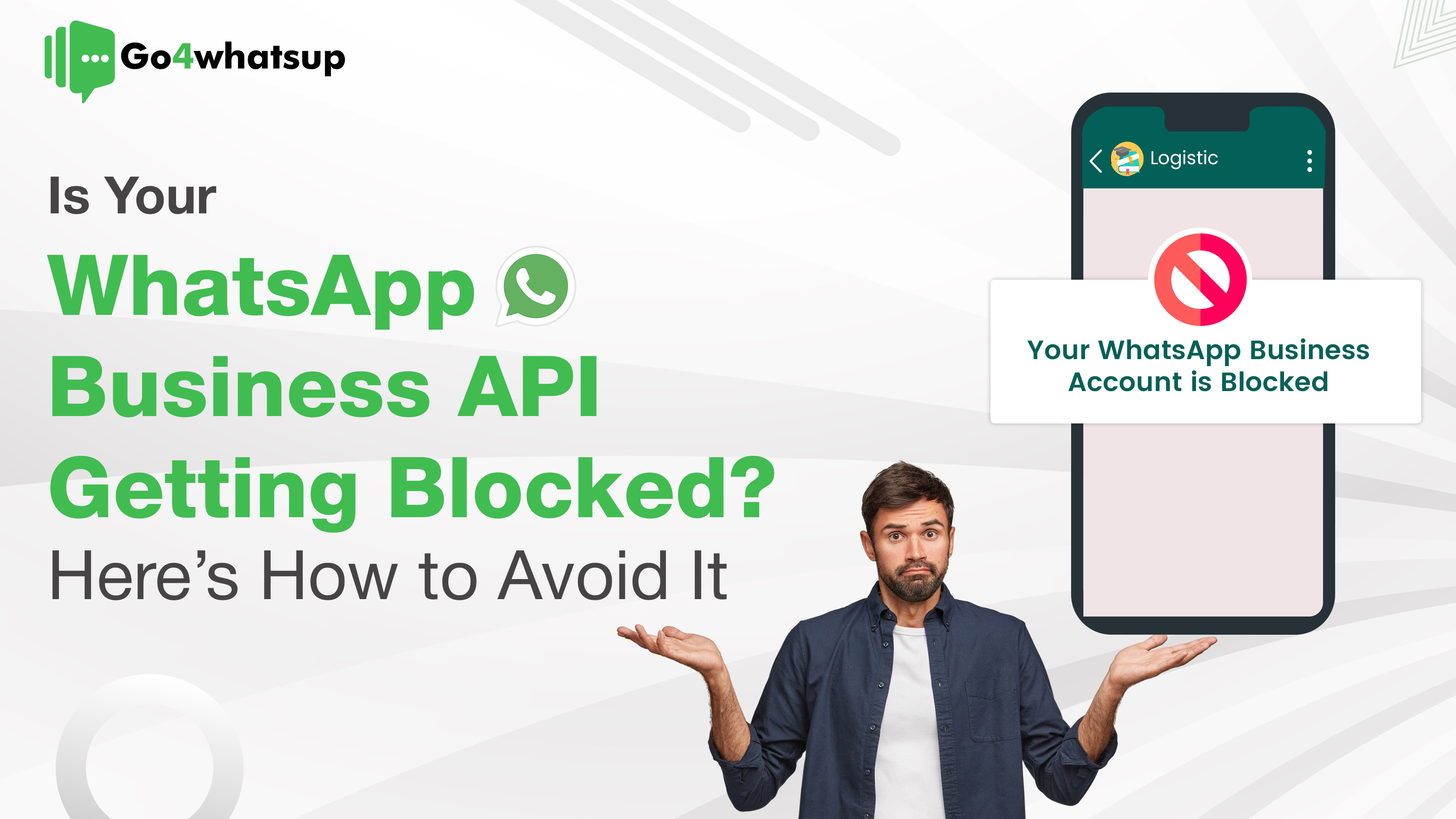
WhatsApp has become the most trusted communication channel for businesses worldwide. From order updates and payment reminders to customer support and marketing automation, the WhatsApp Business API powers mission-critical conversations for modern brands.
But there’s a growing problem in 2025.
? More businesses than ever are getting their WhatsApp Business API blocked or restricted.
If your WhatsApp API suddenly stops sending messages, shows a low quality rating, or gets disabled without warning, the impact can be devastating:
- Missed sales opportunities
- Angry customers
- Broken automation workflows
- Revenue loss within hours
This in-depth guide explains why WhatsApp Business API accounts get blocked, how to recover, and—most importantly—how to prevent bans permanently using compliant, future-proof strategies.
Why WhatsApp Business API Blocks Are Increasing in 2025
WhatsApp (Meta) has significantly tightened enforcement in 2024–2025 to protect user experience. The platform now prioritizes:
- User consent (opt-ins)
- Message relevance
- Engagement quality
- Business authenticity
Businesses that treat WhatsApp like email or SMS blasting tools are being penalized fast.
Reality check: WhatsApp is a relationship channel, not a bulk marketing platform.
What Does It Mean When Your WhatsApp Business API Gets Blocked?
When WhatsApp blocks your Business API account:
- You cannot send or receive messages
- Automation workflows stop instantly
- Message templates may get disabled
- Your phone number may be permanently banned
Types of WhatsApp API Blocks
- Temporary Suspension – Usually due to quality issues
- Permanent Ban – Severe or repeated violations
- Template Restrictions – Messaging allowed, but templates blocked
Recovery depends on severity, history, and compliance readiness.
Top Reasons WhatsApp Business API Gets Blocked (With Real Examples)
1. Missing or Weak User Opt-In (Biggest Reason)
Pain Point:
Businesses buy contact lists or auto-add users without explicit consent.
What WhatsApp Sees:
Spam behavior → user complaints → block
Real Example:
An eCommerce brand imported 50,000 leads from Facebook ads without clear opt-in language. Within 48 hours:
- 18% users blocked the number
- Quality rating dropped to Red
- API suspended permanently
Solution:
Use clear opt-in language:
“By clicking ‘Notify me on WhatsApp,’ you agree to receive updates from us.”
2. Sending Promotional Messages Too Frequently
Pain Point:
Businesses chase conversions aggressively.
What WhatsApp Sees:
Message fatigue → spam signals
2025 Safe Frequency Benchmarks:
- Marketing messages: 1–2 per week
- Transactional messages: As needed
- Follow-ups: Only user-initiated
3. Unapproved or Misleading Message Templates
Every WhatsApp template must be approved before use.
? High-risk templates:
- “Limited time offer!!!”
- “Buy now or miss out”
- Clickbait or exaggerated claims
Real Example:
A fintech company used a template implying loan approval without verification. WhatsApp flagged it as misleading → account restricted.
4. Low Engagement & High User Blocking
WhatsApp tracks:
- Block rate
- Report spam rate
- Reply rate
If users ignore or block your messages repeatedly, your quality score drops—even if templates are approved.
5. Operating Without Business Verification
Unverified businesses are treated as high-risk accounts.
Benefits of verification:
- Higher trust
- Lower ban risk
- Faster template approvals
Business Impact of a Blocked WhatsApp API
? Operational Breakdown
- Order confirmations stop
- Support queues collapse
- Automation workflows fail
? Revenue Loss
- Abandoned carts unrecovered
- Missed inbound leads
- SLA penalties
? Brand Trust Damage
Customers assume:
“This business is unreliable.”
How to Prevent WhatsApp Business API Blocks (Proven 2025 Framework)
1. Build a WhatsApp-First Opt-In System
Best opt-in sources:
- Website forms
- Click-to-WhatsApp ads
- QR codes
- Checkout consent boxes
✅ Always store opt-in timestamps.
2. Use Smart Message Segmentation
Stop sending generic broadcasts.
Segment by:
- Purchase history
- User behavior
- Engagement level
- Geography
3. Balance Automation with Human Replies
WhatsApp favors two-way conversations.
Rule of thumb:
- 70% transactional/support
- 30% promotional
4. Monitor Quality Rating Weekly
Quality ratings change silently.
Use dashboards to track:
- Message delivery
- Block rate
- Engagement trends
5. Partner With a Compliant WhatsApp BSP
A certified provider ensures:
- Policy-aligned automation
- Template safety checks
- Fast appeal handling
What to Do If Your WhatsApp Business API Is Already Blocked
Step 1: Identify the Violation
Check:
- Recent templates
- Opt-in sources
- User complaints
Step 2: Fix the Root Cause
- Pause broadcasts
- Remove risky templates
- Improve consent flows
Step 3: Submit an Appeal
Appeals work best when:
- You show corrective actions
- You partner with an official BSP
⏱ Average recovery time: 3–10 business days
Real-World Recovery Example
Industry: Logistics
Problem: Bulk delivery alerts sent without opt-in
Outcome: API blocked
Fix:
- Introduced OTP-based opt-in
- Reduced broadcast frequency
- Used transactional templates only
Result:
API restored in 6 days + 22% higher engagement
Why Go4Whatsup Helps Businesses Stay Compliant
Go4Whatsup is designed to:
- Prevent quality rating drops
- Ensure template compliance
- Offer opt-in-first automation
- Provide real-time monitoring
FAQs
❓ Why does WhatsApp Business API get blocked?
Due to spam complaints, missing opt-ins, unapproved templates, or low engagement signals.
❓ Can a blocked WhatsApp API be recovered?
Yes, if the violation is addressed and an appeal is submitted correctly.
❓ How long does WhatsApp API recovery take?
Typically 3–10 business days, depending on severity.
❓ Does WhatsApp permanently ban numbers?
Yes, for repeated or severe violations.
❓ How can I avoid WhatsApp API bans in 2025?
Follow opt-in rules, limit promotions, use approved templates, and monitor quality rating
Final Takeaway
WhatsApp Business API blocks are preventable, predictable, and reversible—if you follow the right strategy.
Businesses that win in 2025 treat WhatsApp as:
✔ A trust channel
✔ A service channel
✔ A relationship channel
Not a spam engine.


